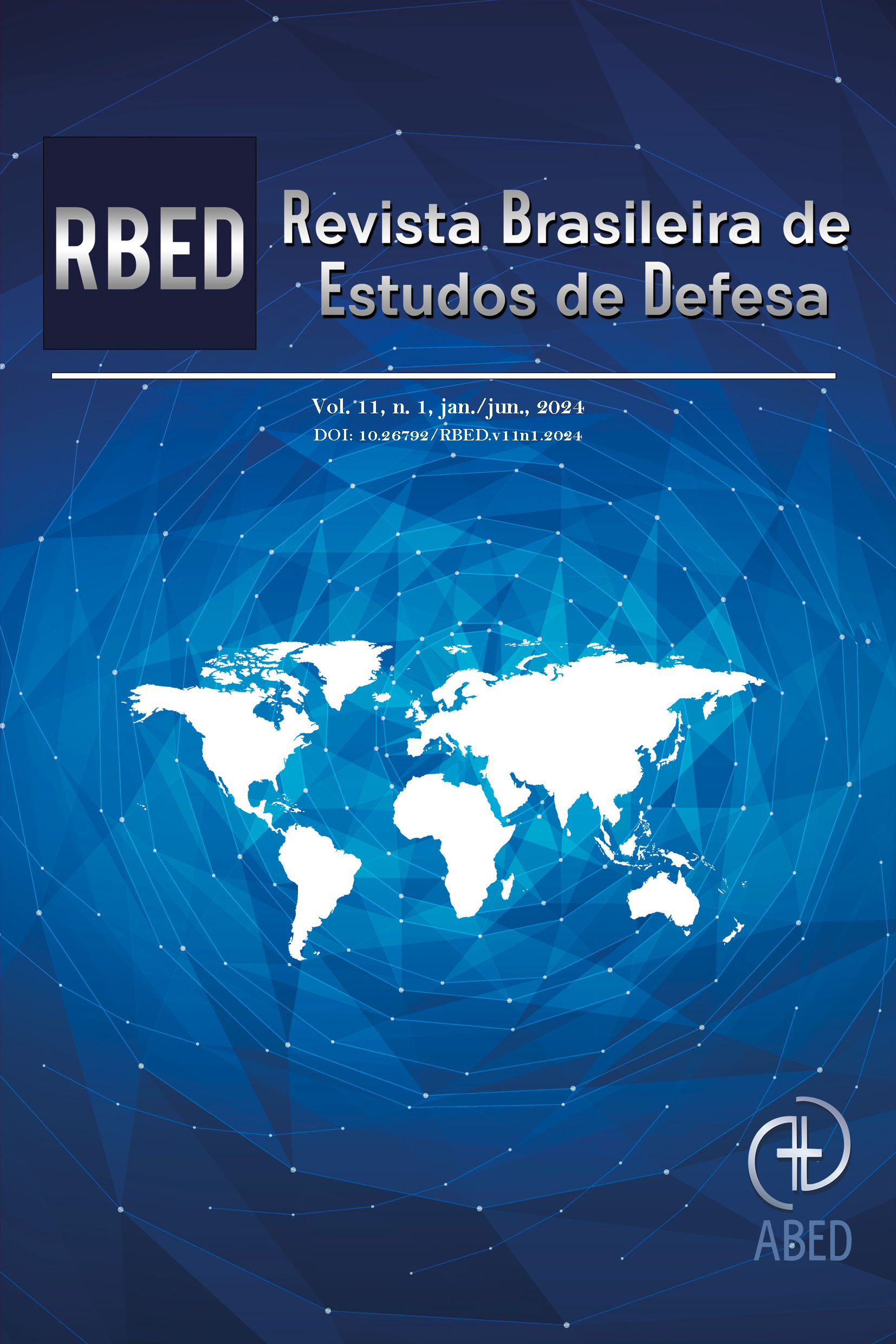Cognitive warfare and the militarization of neuroscience:
research programs on neurotechnology in the United States and China
DOI:
https://doi.org/10.26792/rbed.v11i1.75409Abstract
In this article, we analyze the concept of cognitive warfare and the process of
militarization of neuroscience. In December 2020, the Allied Command for
Transformation of the North Atlantic Treaty Organization (NATO) published a
report on Cognitive Warfare, suggesting the doctrinal adoption of a sixth operational domain, the cognitive domain, in addition to land, sea, air, space, and cyber. According to the report, the human brain will be one of the main battlefield of the 21st century. Civilian and military scientific programs sponsored by different powers have resulted in rapid advances in neuroscience and the development
of neurotechnologies. The process of militarizing neurotechnologies, with the
potential to enhance the physical and cognitive performance of combatants and
commanders, as well as degrade the brain functions of the enemy, has been accelerated by investments in specific military programs, especially in the United
States and China. Neurotechnology has disruptive potential in conflicts in operational and tactical terms, with implications for the strategic dimension.
Downloads
Downloads
Published
How to Cite
Issue
Section
License
Copyright (c) 2024 Christiano Cruz Ambros

This work is licensed under a Creative Commons Attribution 4.0 International License.
Autores que publicam nesta revista concordam com os seguintes termos:1) Autores mantêm os direitos autorais e concedem à revista o direito de primeira publicação, com o trabalho simultaneamente licenciado sob a Licença Creative Commons Attribution que permite o compartilhamento do trabalho com reconhecimento da autoria e publicação inicial nesta revista.
2) Autores têm autorização para assumir contratos adicionais separadamente, para distribuição não-exclusiva da versão do trabalho publicada nesta revista (ex.: publicar em repositório institucional ou como capítulo de livro), com reconhecimento de autoria e publicação inicial nesta revista.
3) Autores têm permissão e são estimulados a publicar e distribuir seu trabalho online (ex.: em repositórios institucionais ou na sua página pessoal) a qualquer ponto antes ou durante o processo editorial, já que isso pode gerar alterações produtivas, bem como aumentar o impacto e a citação do trabalho publicado (Veja O Efeito do Acesso Livre).





